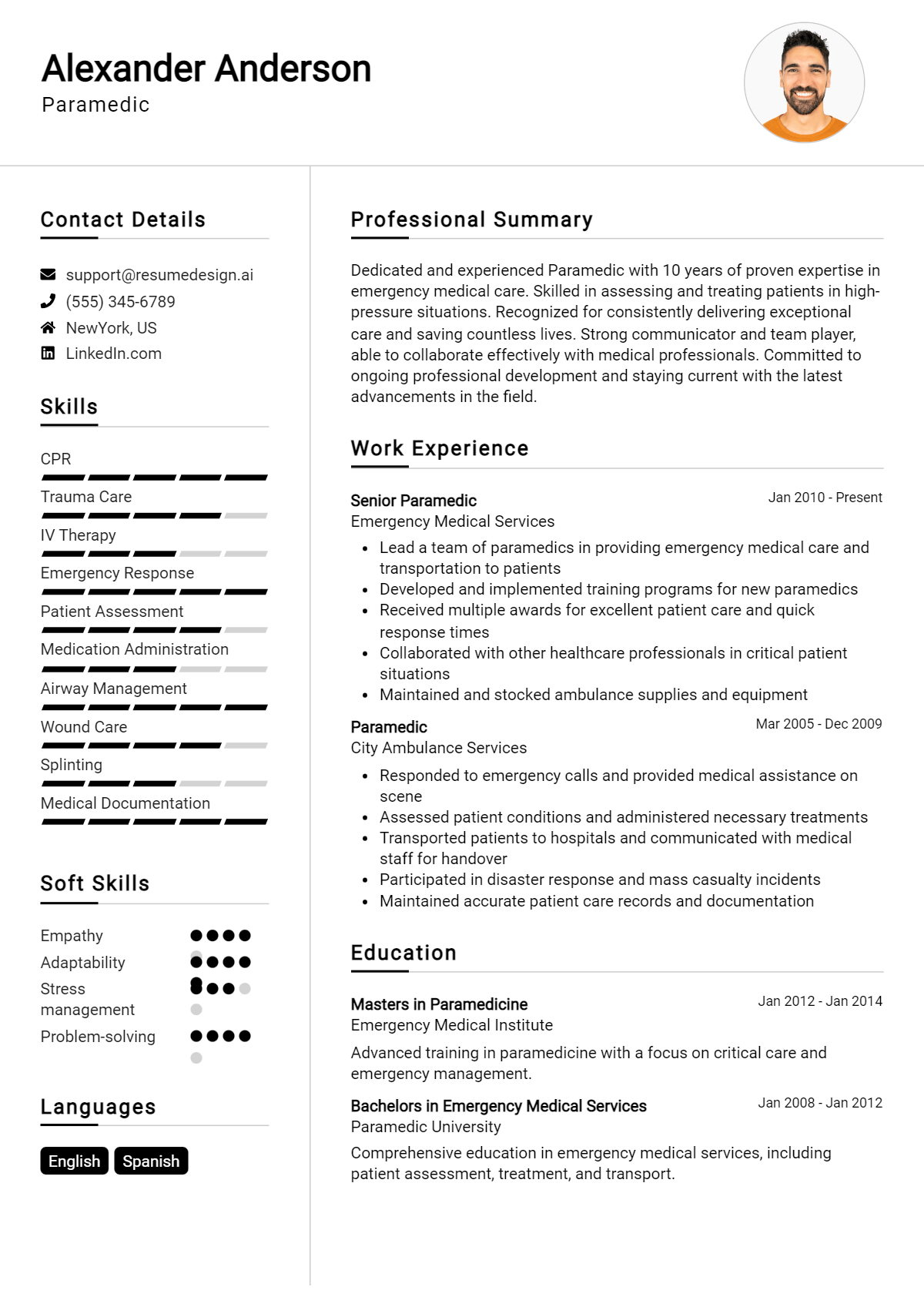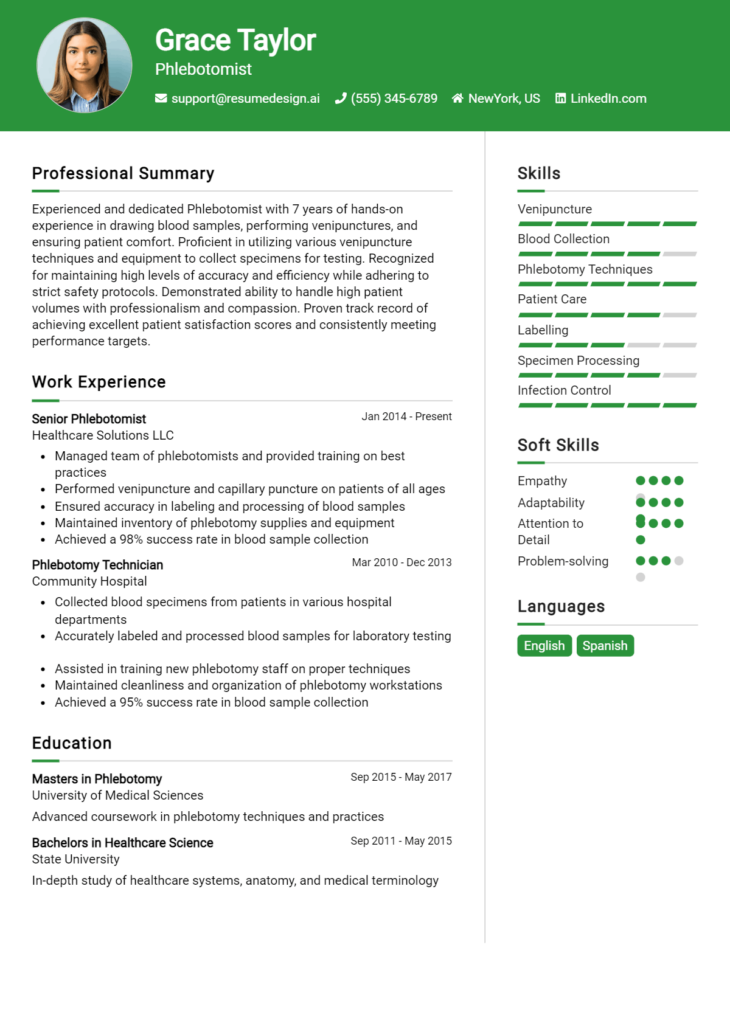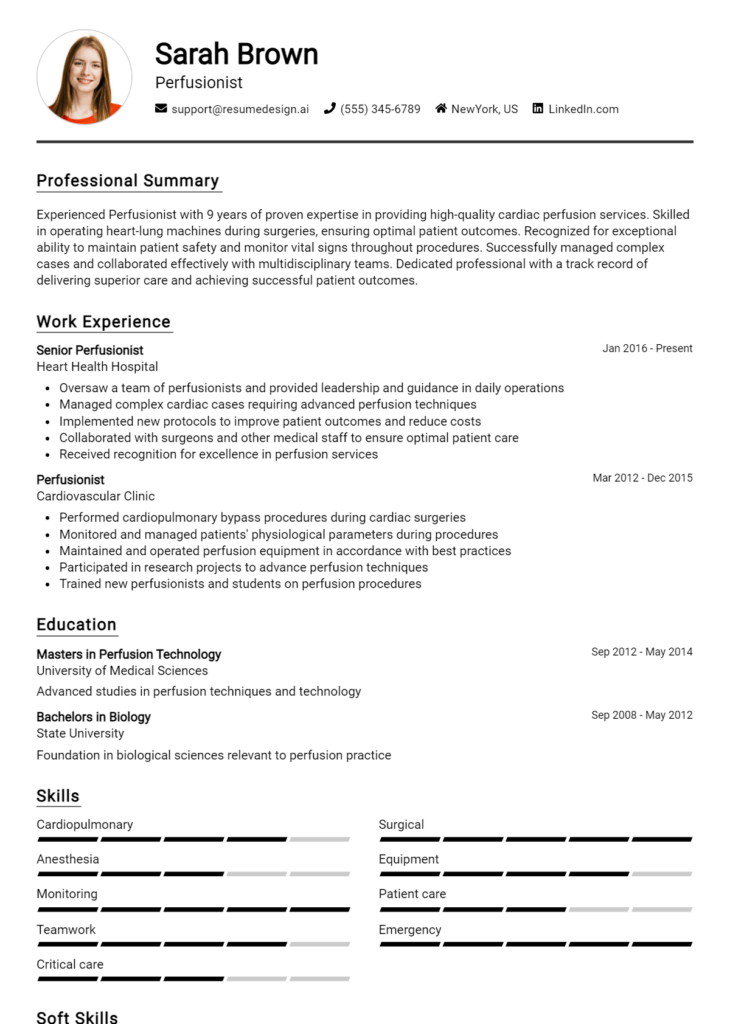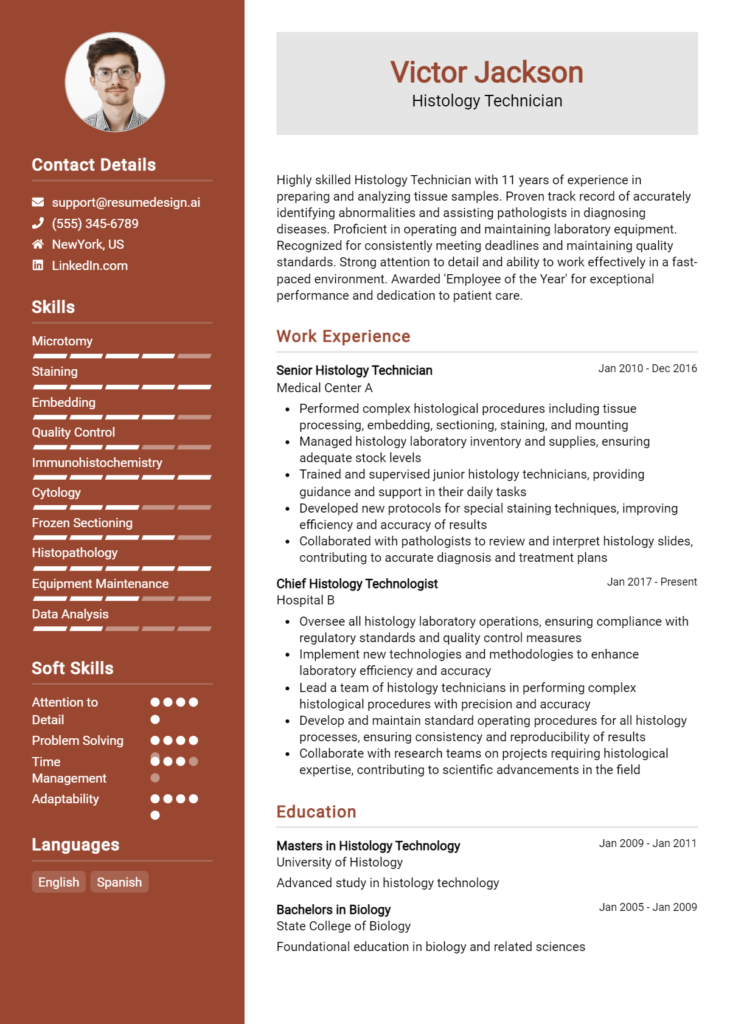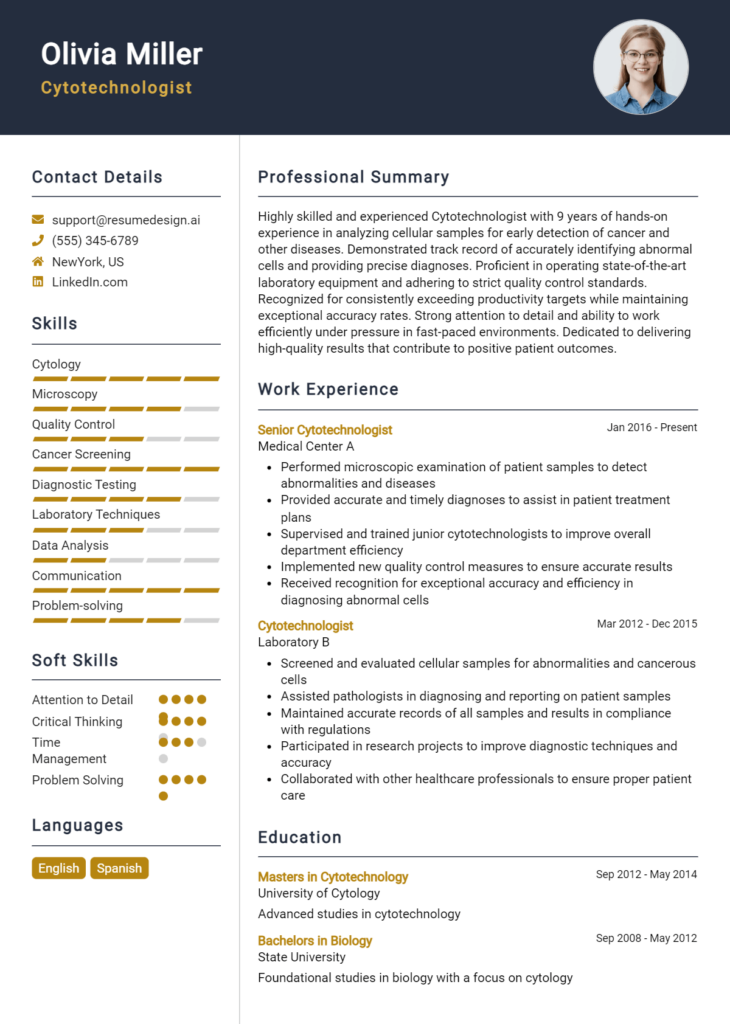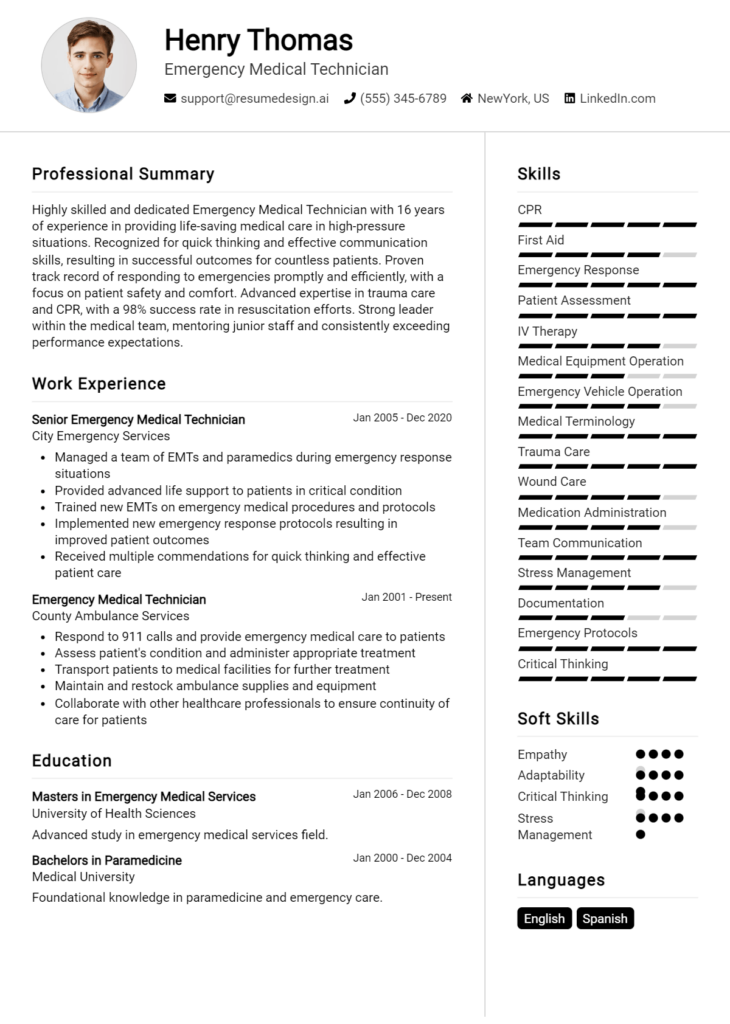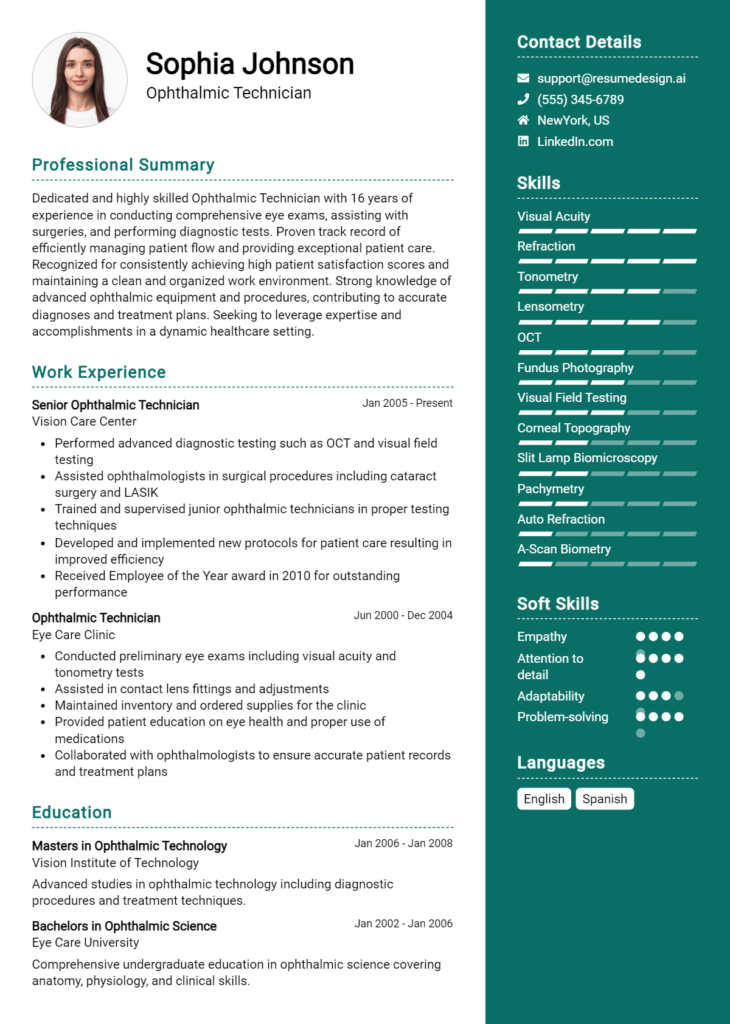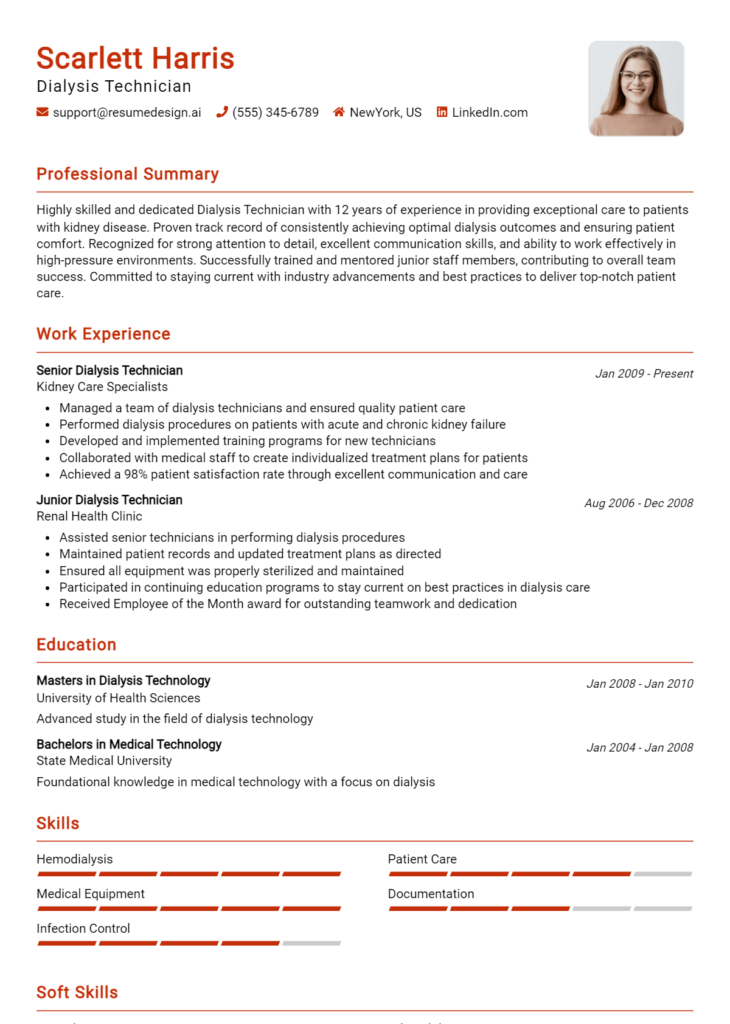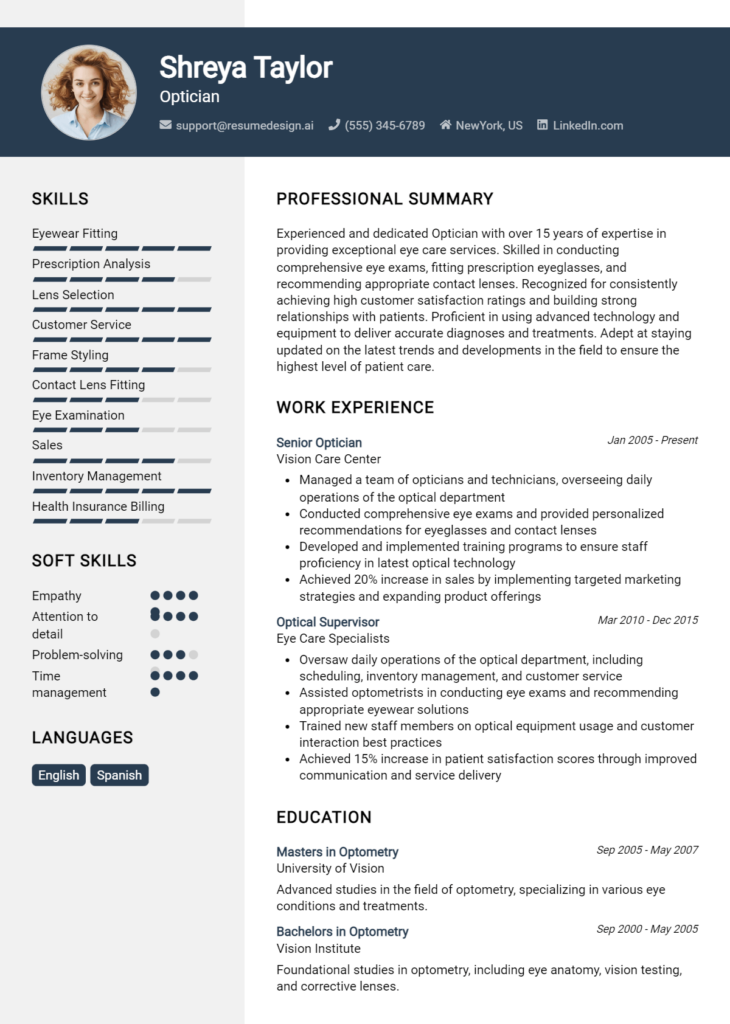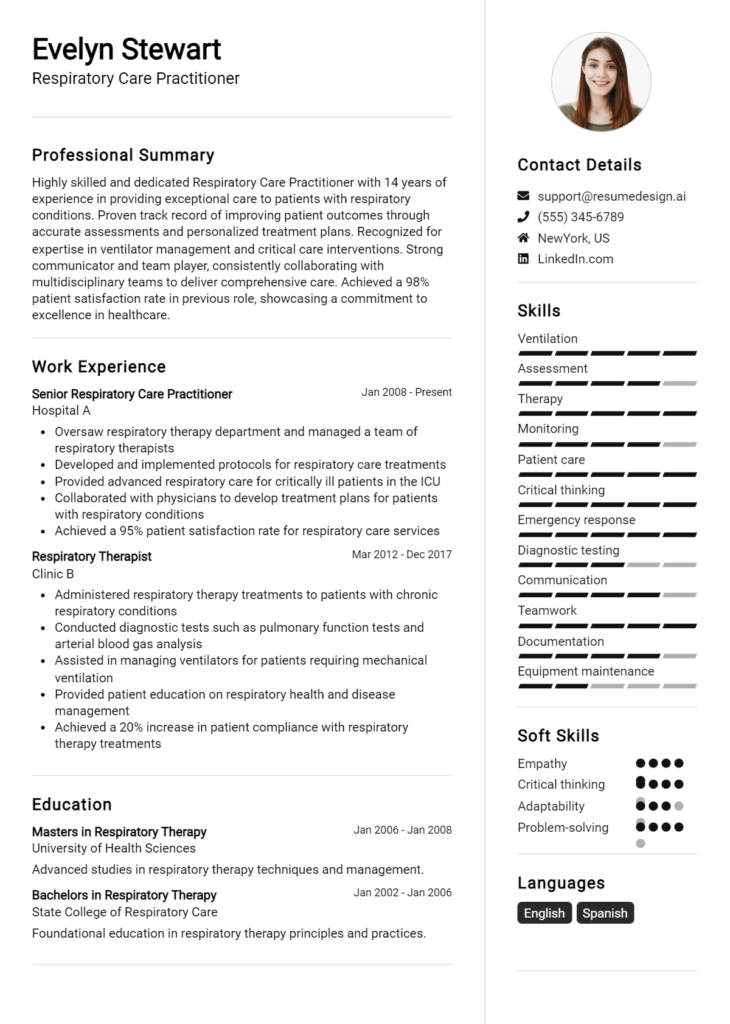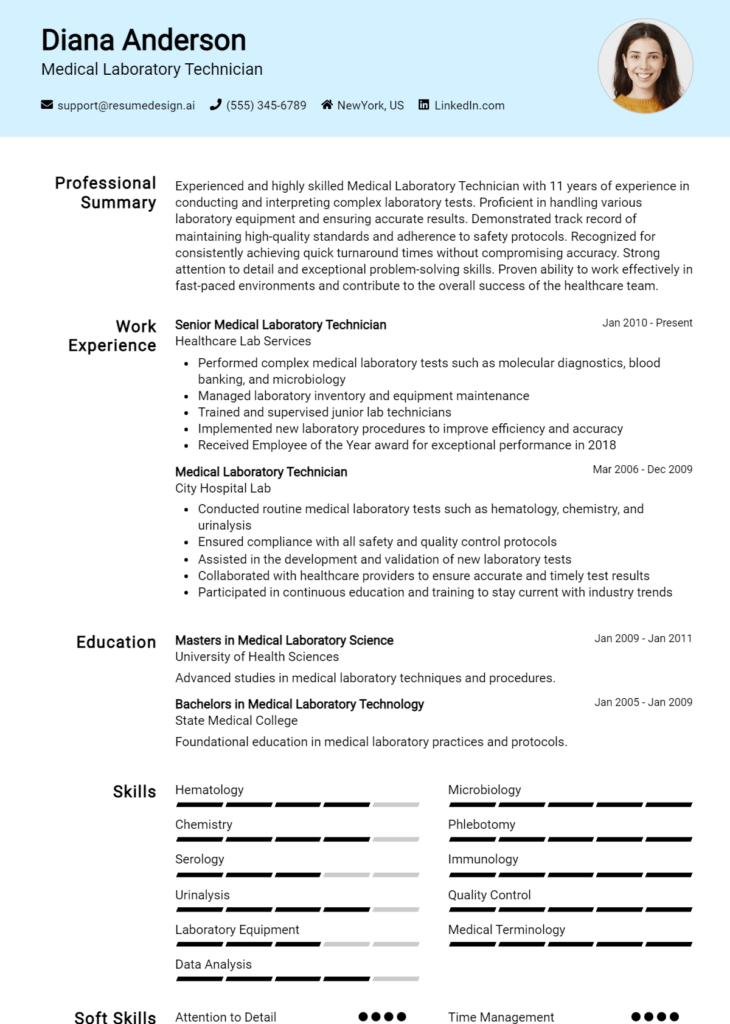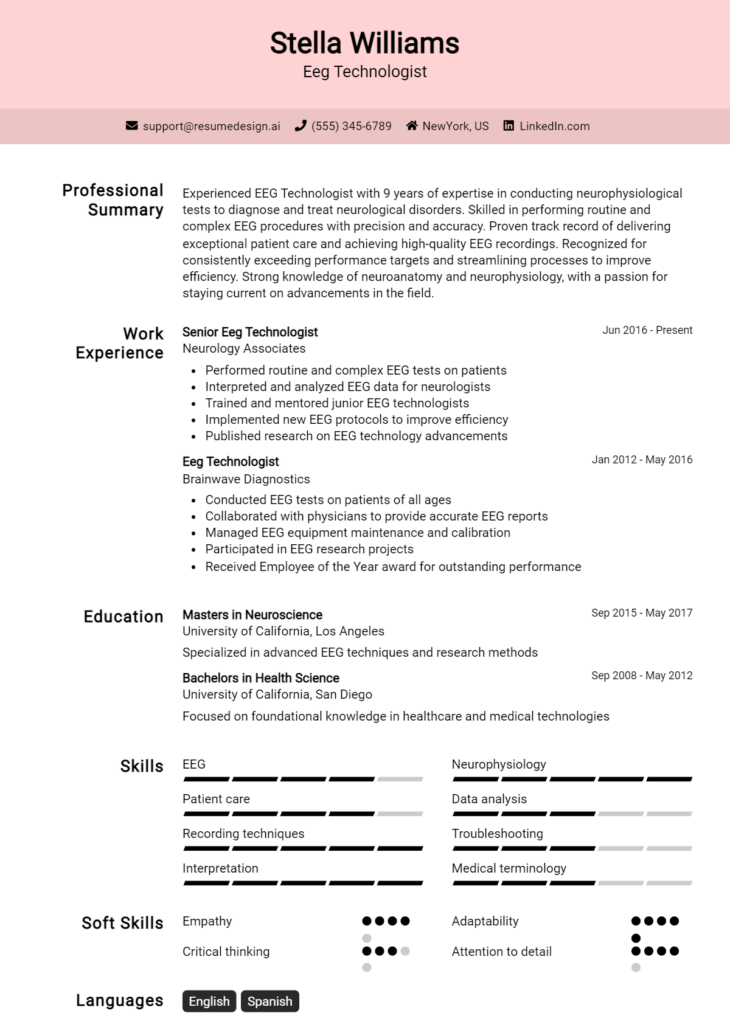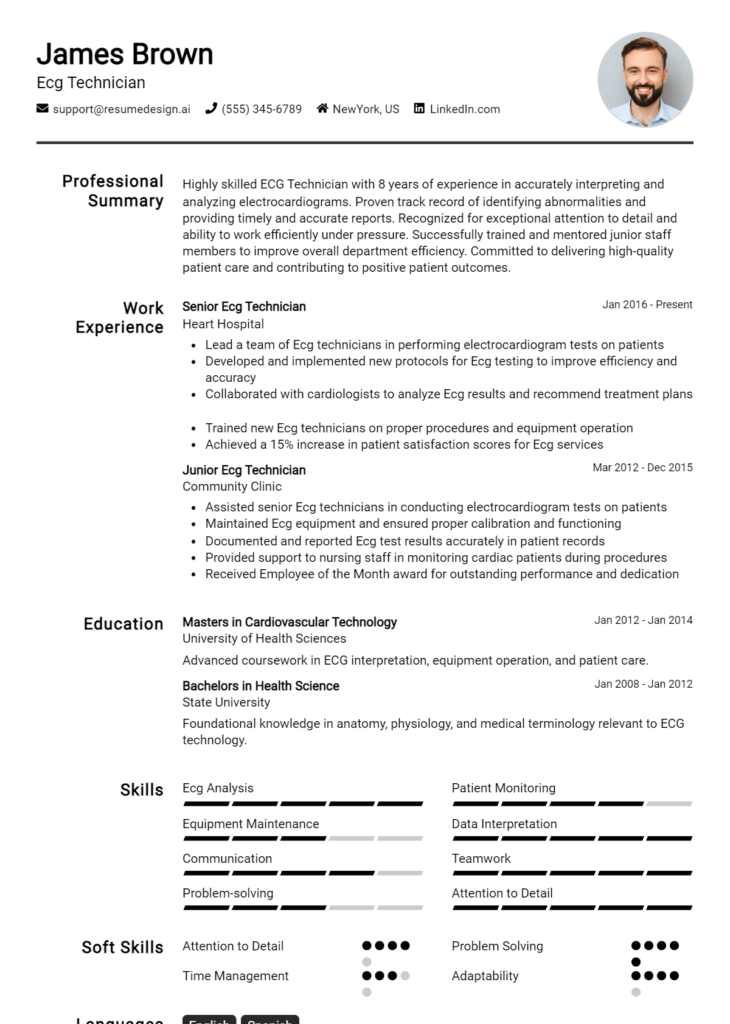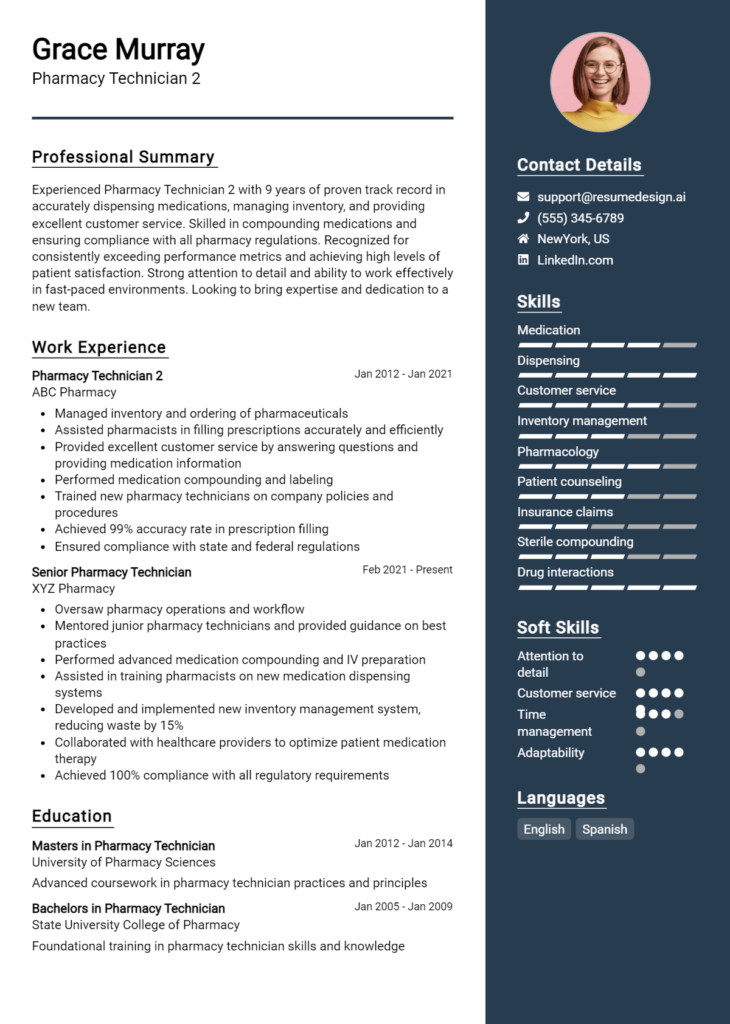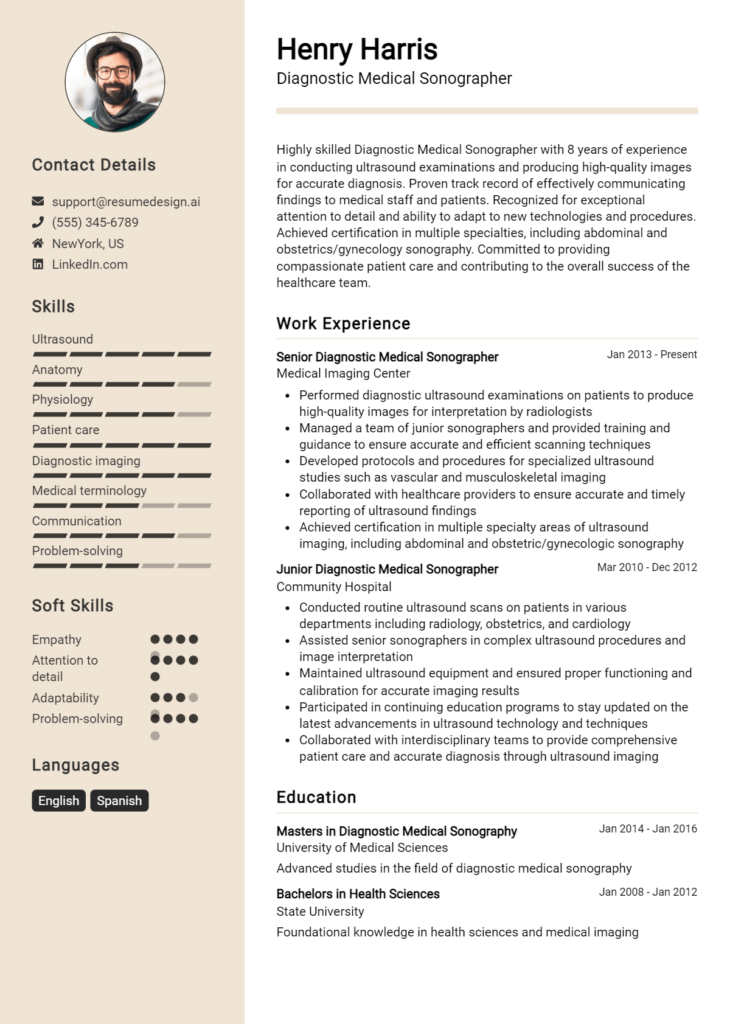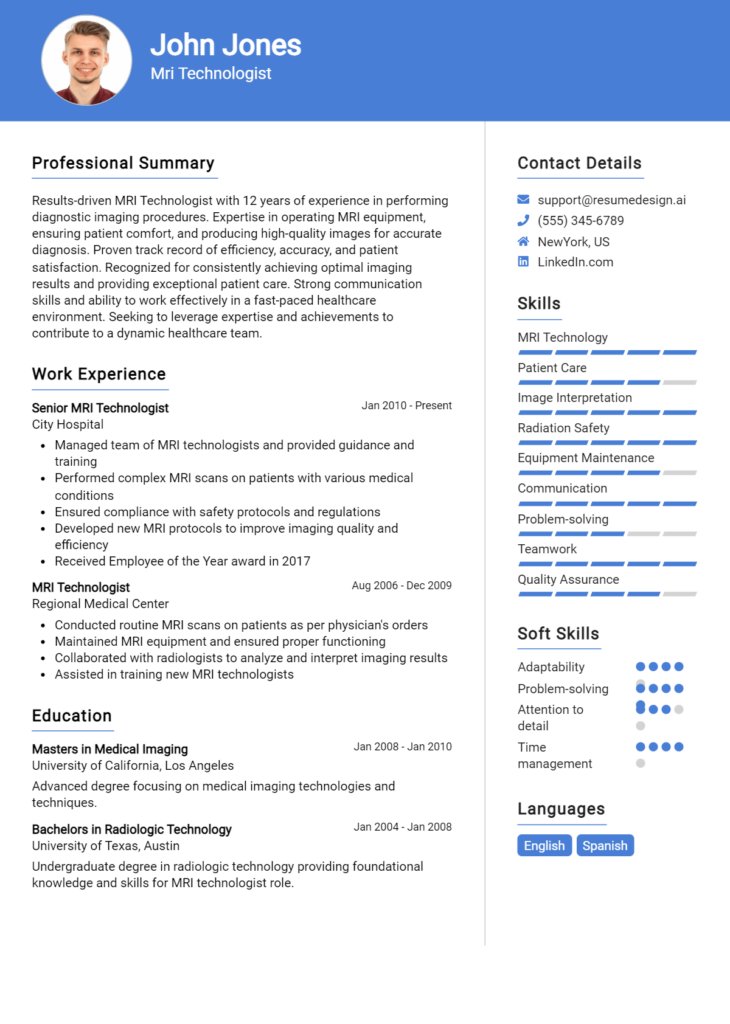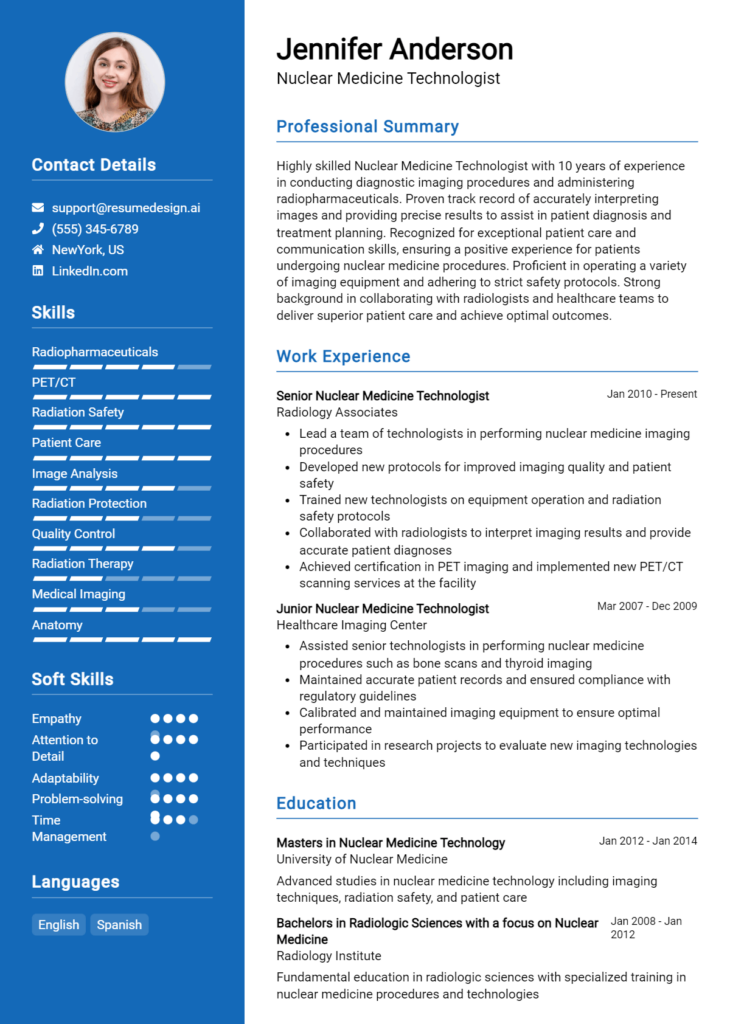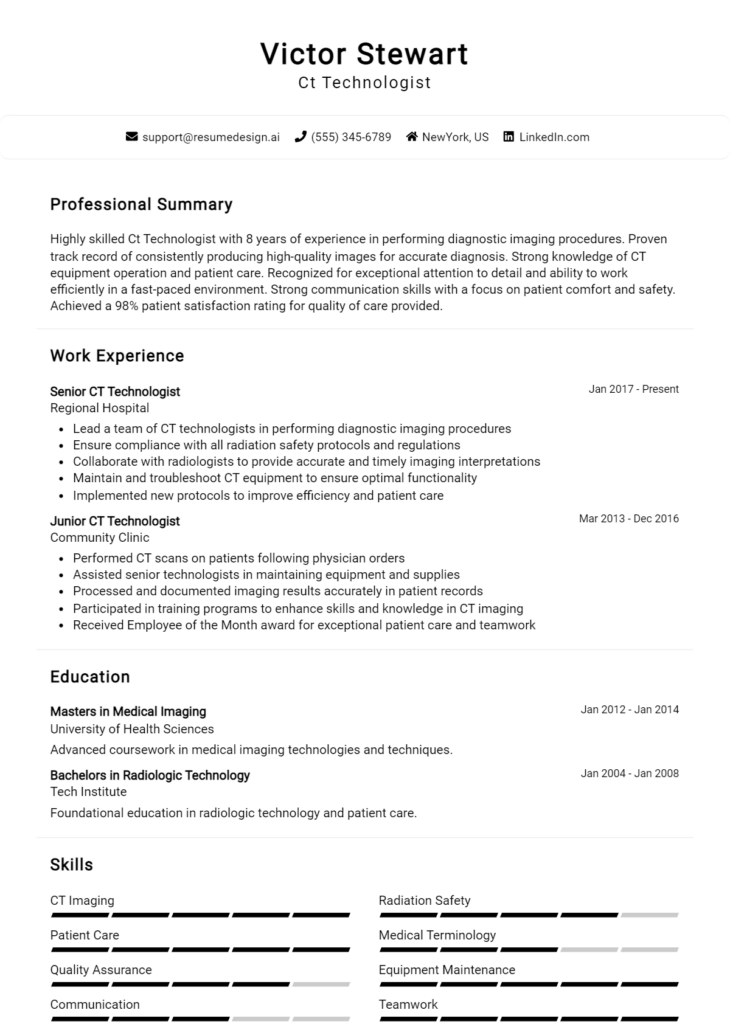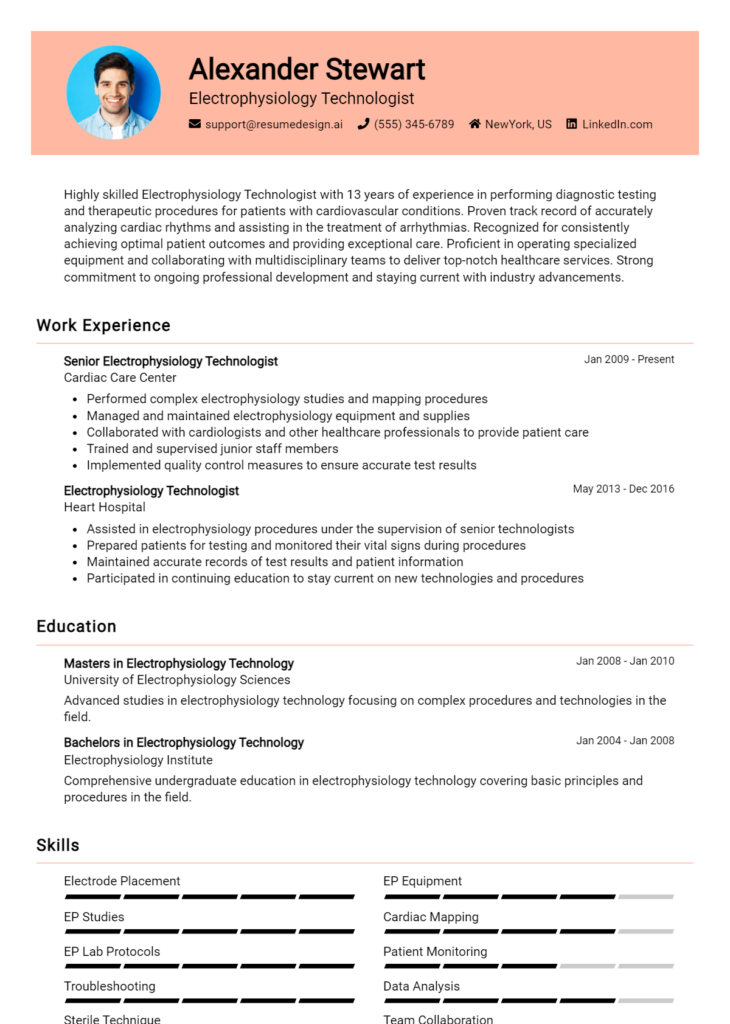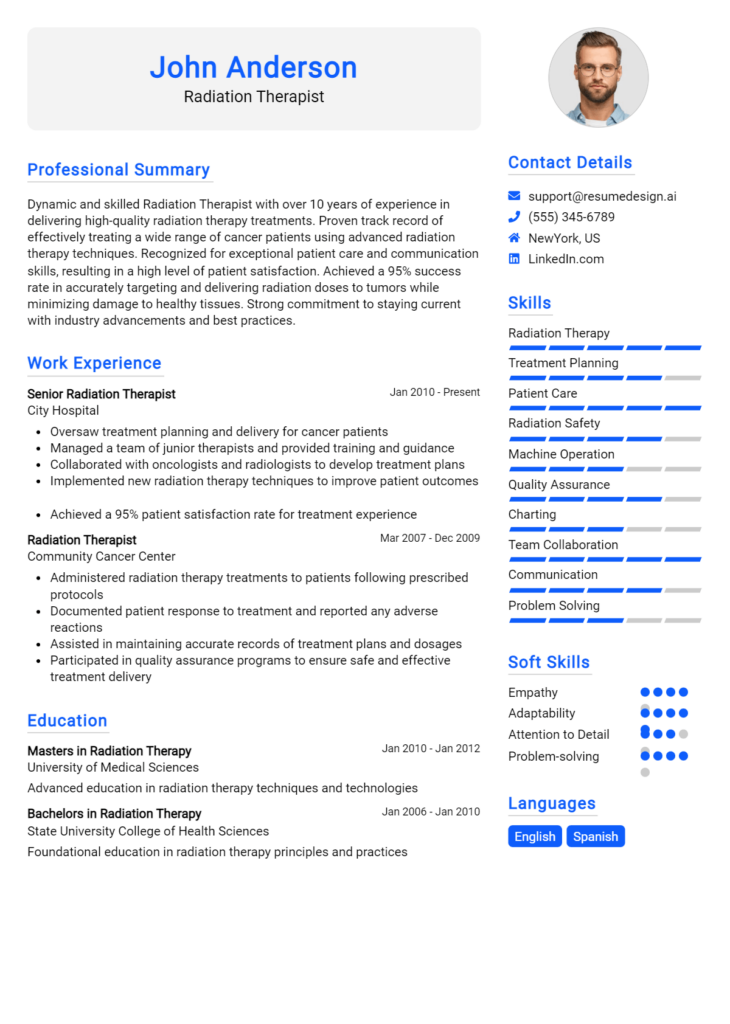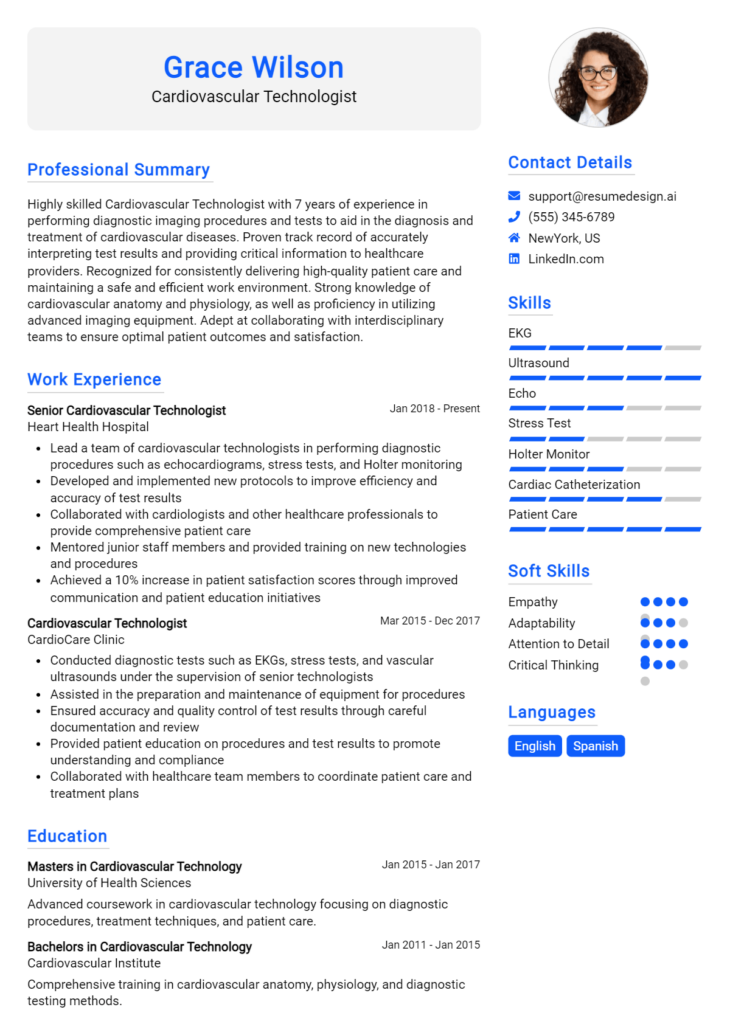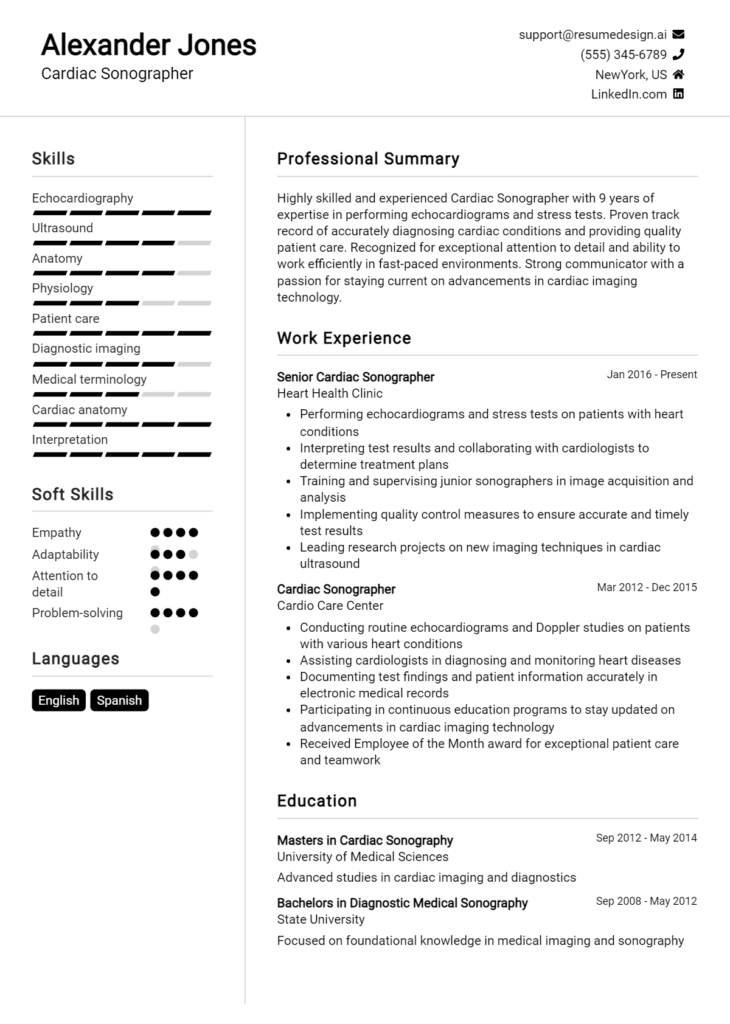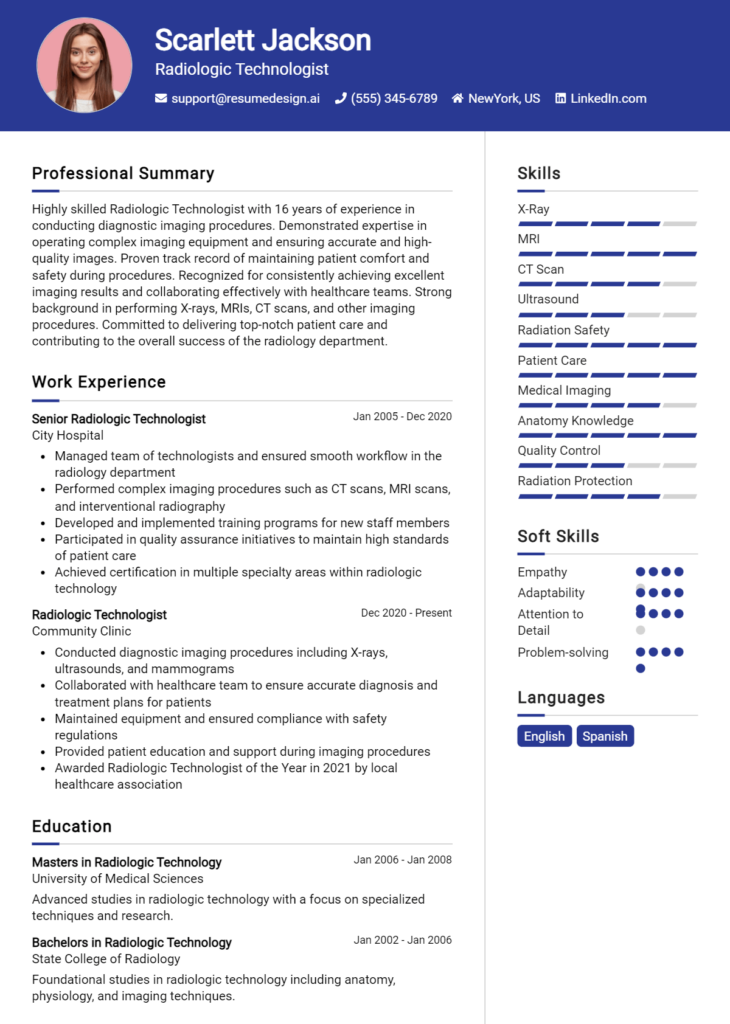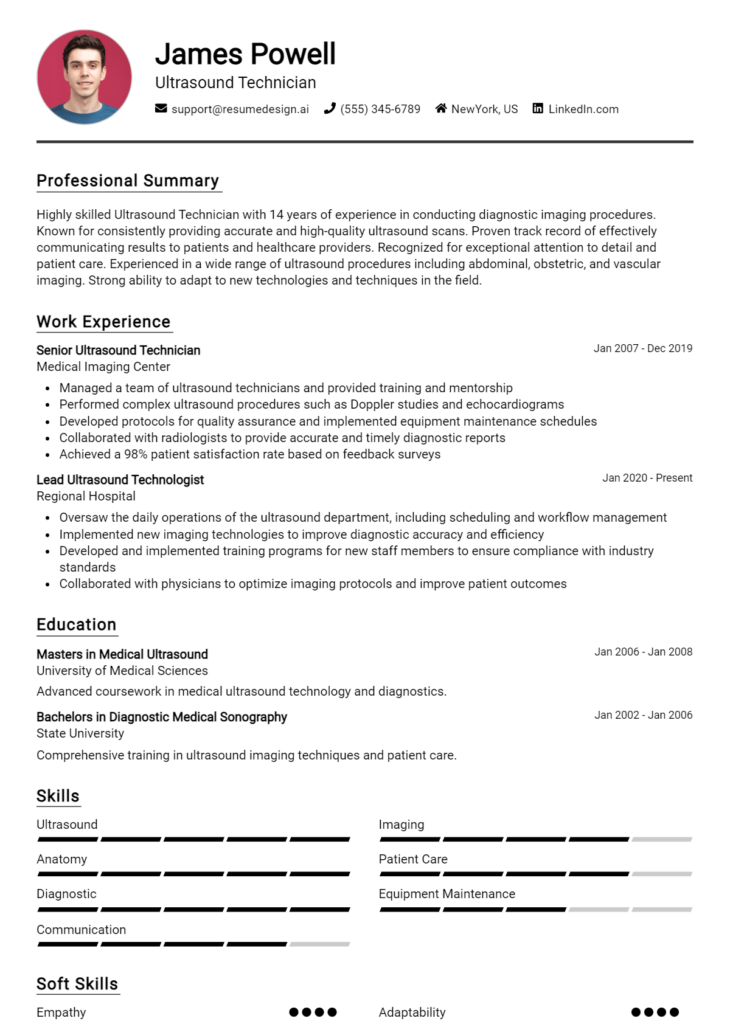Paramedic Core Responsibilities
Paramedics play a crucial role in emergency medical services, bridging the gap between various healthcare departments and ensuring timely patient care. Their core responsibilities include assessing patients' conditions, providing emergency medical treatment, and transporting patients safely to healthcare facilities. Successful paramedics require strong technical skills, operational knowledge, and problem-solving abilities to respond effectively in high-pressure situations. These competencies contribute significantly to the organization’s goals of patient safety and care quality. A well-structured resume can effectively showcase these qualifications, making candidates stand out in a competitive field.
Common Responsibilities Listed on Paramedic Resume
- Administering advanced life support techniques and medications.
- Conducting thorough patient assessments and vital signs monitoring.
- Stabilizing patients and managing trauma in emergency situations.
- Coordinating with medical teams and emergency responders.
- Documenting patient care and maintaining accurate medical records.
- Operating and maintaining medical equipment and vehicles.
- Educating patients and families on health and safety practices.
- Participating in community outreach and training programs.
- Responding to emergency calls promptly and efficiently.
- Ensuring compliance with healthcare regulations and protocols.
- Training and mentoring junior staff and volunteers.
- Managing stress and making quick decisions in crisis situations.
High-Level Resume Tips for Paramedic Professionals
In the competitive field of emergency medical services, a well-crafted resume is essential for Paramedic professionals aiming to make a strong first impression on potential employers. Your resume serves as a marketing tool that showcases your skills, achievements, and unique qualifications in a concise format. It not only highlights your ability to respond effectively in high-pressure situations but also demonstrates your commitment to patient care and safety. This guide will provide practical and actionable resume tips specifically tailored for Paramedic professionals, ensuring that your resume stands out in a crowded job market.
Top Resume Tips for Paramedic Professionals
- Tailor your resume to each job description by incorporating relevant keywords and phrases that match the requirements.
- Showcase your hands-on experience by detailing your roles in various emergency situations, including critical care and trauma cases.
- Quantify your achievements where possible, such as the number of successful interventions or patient outcomes you have directly influenced.
- Highlight industry-specific skills, such as advanced life support (ALS) techniques, CPR certifications, and knowledge of emergency protocols.
- Include any specialized training or certifications that set you apart, such as tactical paramedicine or pediatric advanced life support (PALS).
- Utilize a clear and organized format that makes it easy for hiring managers to scan your qualifications quickly.
- Emphasize soft skills, such as communication, teamwork, and decision-making, which are crucial in emergency medical situations.
- Incorporate volunteer work or additional relevant experiences that demonstrate your commitment to the field and ongoing professional development.
- Keep your resume concise, ideally one page, while ensuring it captures all essential information to reflect your qualifications effectively.
- Proofread your resume for any errors in spelling or grammar, as attention to detail is vital in the Paramedic profession.
By implementing these tips, you can significantly enhance your chances of landing a job in the Paramedic field. A well-structured resume that emphasizes your skills and achievements not only captures the attention of hiring managers but also positions you as a qualified candidate ready to respond to the demands of this vital profession.
Why Resume Headlines & Titles are Important for Paramedic
In the competitive field of emergency medical services, a well-crafted resume headline or title is a crucial element that can significantly influence a candidate's chances of securing an interview. For paramedics, a strong headline serves as a powerful introduction that captures the attention of hiring managers, summarizing key qualifications and relevant experience in a single, impactful phrase. It should be concise, relevant, and tailored to the specific job being applied for, ensuring that it resonates with the needs of the employer and stands out in a crowded applicant pool.
Best Practices for Crafting Resume Headlines for Paramedic
- Make it concise: Aim for a headline that is no more than 10-12 words.
- Be role-specific: Use terminology and keywords relevant to the paramedic position.
- Highlight key strengths: Focus on your most significant skills or accomplishments.
- Use strong action words: Begin with powerful verbs that convey your capabilities.
- Avoid jargon: Ensure that your headline is easily understood by all hiring managers.
- Tailor for each application: Customize your headline to align with the specific job description.
- Include certifications: Mention any relevant certifications or licenses to add credibility.
- Keep it professional: Maintain a professional tone that reflects the seriousness of the role.
Example Resume Headlines for Paramedic
Strong Resume Headlines
Compassionate and Experienced Paramedic with 5+ Years in Emergency Response
Certified EMT-P Skilled in Advanced Life Support and Patient Care
Dedicated Paramedic with Proven Track Record in Life-Saving Emergency Interventions
Dynamic Paramedic with Expertise in Trauma Care and Critical Situations
Weak Resume Headlines
Paramedic Looking for a Job
Emergency Medical Services Professional
Hardworking Individual Seeking Opportunities
The strong headlines are effective because they immediately convey the candidate's relevant experience and qualifications while using powerful language that grabs attention. They highlight specific skills and accomplishments that are directly related to the paramedic role, making them appealing to hiring managers. In contrast, the weak headlines lack specificity and fail to communicate the candidate's strengths, making them forgettable and ineffective in a competitive job market.
Writing an Exceptional Paramedic Resume Summary
A resume summary is a crucial component for any Paramedic looking to make a strong impression on hiring managers. In the fast-paced world of emergency medical services, a well-crafted summary quickly captures attention by highlighting key skills, relevant experience, and notable accomplishments. A strong summary should be concise and impactful, tailored specifically to the job for which the candidate is applying, ensuring that it resonates with the unique requirements of the role and demonstrates the candidate's value at a glance.
Best Practices for Writing a Paramedic Resume Summary
- Quantify achievements: Use numbers to demonstrate the impact of your work, such as the number of patients treated or response times.
- Focus on relevant skills: Highlight critical skills such as advanced life support, patient assessment, or trauma care.
- Tailor for the job description: Customize your summary to align with the specific requirements and language found in the job posting.
- Highlight certifications: Include relevant certifications such as EMT-P, ACLS, or PALS to establish your credentials.
- Showcase experience: Briefly outline your years of experience and the types of environments you have worked in (e.g., urban, rural, hospital).
- Emphasize teamwork: Mention your ability to work effectively in high-stress, collaborative situations with other healthcare professionals.
- Keep it concise: Aim for 3-5 sentences that encapsulate your qualifications without overwhelming the reader.
- Use action verbs: Start sentences with strong action verbs to convey proactivity and competence.
Example Paramedic Resume Summaries
Strong Resume Summaries
Dedicated Paramedic with over 5 years of experience in urban emergency response, successfully managing an average of 150 patient cases per month. Certified in ACLS and PALS, with commendable skills in trauma care and advanced life support techniques. Proven track record of reducing response times by 20%, ensuring optimal patient outcomes.
Compassionate and skilled Paramedic with 7 years of experience in high-pressure environments, adept at patient assessment and emergency interventions. Awarded 'Paramedic of the Year' for exceptional service, demonstrating a 30% improvement in patient satisfaction ratings through effective communication and care.
Results-driven Paramedic with expertise in both ground and air medical transport, handling over 1,000 emergency calls with a focus on critical case management. Holds multiple certifications, including NREMT and Advanced Cardiac Life Support, and consistently recognized for teamwork and leadership under pressure.
Weak Resume Summaries
Experienced Paramedic looking for a new opportunity. I have worked in various settings and have a strong desire to help people.
I am a Paramedic with some experience in emergency care. I am a team player and have a passion for healthcare.
The strong examples clearly articulate specific skills, quantify achievements, and demonstrate direct relevance to the Paramedic role, making them impactful and memorable. In contrast, the weak summaries are vague and lack detailed accomplishments or specific skills, failing to engage hiring managers or differentiate the candidate from others.
Work Experience Section for Paramedic Resume
The work experience section of a Paramedic resume is essential as it serves as a platform to demonstrate the candidate's technical skills, leadership capabilities, and commitment to delivering high-quality emergency care. This section not only highlights relevant experiences but also showcases the ability to manage teams effectively and respond to high-pressure situations. By quantifying achievements and aligning experiences with industry standards, candidates can effectively convey their qualifications to potential employers, making a compelling case for their candidacy in this critical field.
Best Practices for Paramedic Work Experience
- Highlight specific technical skills relevant to emergency medical services, such as advanced life support, trauma care, and patient assessment.
- Include quantifiable results, such as the number of successful patient transports or the improvement in response times.
- Demonstrate leadership experience by mentioning roles in supervising teams or training new paramedics.
- Showcase collaboration with other healthcare professionals and emergency services during critical incidents.
- Utilize action verbs to describe your responsibilities and accomplishments, enhancing the impact of your statements.
- Tailor your experiences to align with job descriptions and industry standards to maximize relevance.
- Incorporate any certifications or specialized training that enhance your qualifications.
- Use clear and concise language to ensure your experiences are easily understood by hiring managers.
Example Work Experiences for Paramedic
Strong Experiences
- Led a team of 5 paramedics in a high-volume urban area, achieving a 20% reduction in average response time over 12 months through improved dispatch protocols.
- Implemented advanced trauma care protocols that resulted in a 30% increase in patient survival rates during critical interventions.
- Coordinated with local hospitals and emergency services to streamline patient transfers, enhancing inter-agency communication and reducing wait times by 15%.
- Trained and mentored 10 new paramedics, improving team efficiency and ensuring compliance with state medical protocols.
Weak Experiences
- Worked as a paramedic and handled various medical emergencies.
- Assisted in transporting patients to hospitals.
- Participated in team meetings to discuss patient care.
- Helped with daily tasks related to emergency response.
The experiences listed as strong are characterized by specific, quantifiable outcomes and a clear demonstration of leadership and collaboration, showcasing the candidate's impact in their role. In contrast, the weak experiences lack detail and fail to convey meaningful contributions or results, making them less compelling to potential employers. Strong experiences also align closely with industry standards, while weak examples remain vague and unimpressive.
Education and Certifications Section for Paramedic Resume
The education and certifications section of a Paramedic resume is crucial in demonstrating a candidate's foundational knowledge and commitment to the medical field. It not only outlines the academic background that has prepared the individual for the challenges of emergency medical services but also highlights industry-relevant certifications and any specialized training undertaken to stay current with best practices. By detailing relevant coursework and certifications, candidates can significantly enhance their credibility and show alignment with the requirements of the job role, signaling to employers that they possess the necessary skills and dedication to excel in a high-stakes environment.
Best Practices for Paramedic Education and Certifications
- Include only relevant degrees and certifications that pertain to emergency medical services.
- Provide clear details about your educational institutions, including the degree obtained and graduation dates.
- List industry-recognized certifications such as NREMT, ACLS, and PALS prominently.
- Highlight any specialized training or advanced courses that enhance your expertise, such as tactical medicine or trauma care.
- Use bullet points to keep the information organized and easy to read.
- Update this section regularly to include any new certifications or training.
- Consider adding relevant volunteer experience or internships in emergency services.
- Keep descriptions concise but informative, focusing on skills gained and knowledge acquired.
Example Education and Certifications for Paramedic
Strong Examples
- Associate Degree in Applied Science in Emergency Medical Services, XYZ Community College, May 2022
- National Registry of Emergency Medical Technicians (NREMT) Certification, Active since June 2022
- Advanced Cardiovascular Life Support (ACLS) Certification, American Heart Association, Valid through December 2024
- Pediatric Advanced Life Support (PALS) Certification, American Heart Association, Valid through December 2024
Weak Examples
- Bachelor of Arts in History, ABC University, Graduated 2010
- CPR Certification from an unrecognized organization, Expired 2021
- Basic First Aid Course, Completed in 2015
- High School Diploma, Received in 2008 (without additional relevant training)
The strong examples listed above are considered effective because they are directly relevant to the Paramedic role, demonstrating recent education and certifications that align with industry standards. In contrast, the weak examples reflect outdated or irrelevant qualifications that do not support the candidate’s readiness for a Paramedic position. Highlighting current and recognized credentials is essential for establishing credibility in the competitive field of emergency medical services.
Top Skills & Keywords for Paramedic Resume
As a Paramedic, the ability to deliver high-quality emergency medical care is paramount, and showcasing the right skills on your resume can make a significant difference in your job application process. Skills not only highlight your qualifications but also demonstrate your readiness to handle the demanding and dynamic nature of emergency medical services. A well-crafted resume that emphasizes both hard and soft skills can attract the attention of hiring managers, showcasing your capability to provide critical care and work effectively in high-pressure situations. Understanding which skills to include is essential for creating a compelling resume that stands out in a competitive field.
Top Hard & Soft Skills for Paramedic
Soft Skills
- Excellent communication skills
- Strong decision-making abilities
- Compassionate patient care
- Team collaboration
- Adaptability to changing situations
- Strong problem-solving skills
- Emotional resilience
- Attention to detail
- Time management
- Leadership qualities
Hard Skills
- Proficient in CPR and first aid
- Advanced life support (ALS) skills
- Knowledge of medical equipment and technology
- Ability to administer medications
- Patient assessment and triage
- Knowledge of anatomy and physiology
- Trauma care and management
- Emergency response protocols
- Familiarity with health information systems
- Certification in specialized emergency medical services (e.g., PALS, ACLS)
For more information about including these important skills and showcasing your relevant work experience, consider exploring additional resources that can guide you in crafting an outstanding resume.
Stand Out with a Winning Paramedic Cover Letter
Dear [Hiring Manager's Name],
I am writing to express my interest in the Paramedic position at [Company/Organization Name] as advertised [where you found the job listing]. With a robust background in emergency medical services, complemented by my certification as a Nationally Registered Paramedic, I am excited about the opportunity to contribute to your team. My hands-on experience in high-pressure situations has not only honed my clinical skills but has also equipped me to provide compassionate patient care in diverse environments.
During my time with [Previous Employer/Organization], I successfully managed a wide range of emergency situations, from trauma cases to medical emergencies. My ability to think critically and act swiftly has consistently resulted in positive outcomes for patients and support for fellow team members. I pride myself on my strong communication skills, which enable me to effectively collaborate with healthcare professionals and reassure patients and their families during times of distress. Additionally, I have a proven track record of maintaining detailed and accurate patient records, ensuring compliance with all regulatory requirements.
I am particularly drawn to [Company/Organization Name] because of its commitment to community health and innovative approaches to emergency care. I am eager to bring my expertise in advanced life support and patient management to your esteemed organization. I am confident that my proactive approach and dedication to continuous learning will make a valuable addition to your team. I look forward to the opportunity to discuss how my skills and experiences align with the needs of your department.
Thank you for considering my application. I am enthusiastic about the possibility of joining [Company/Organization Name] and contributing to the exceptional care you provide to the community. I hope to discuss my application further in an interview setting.
Sincerely,
[Your Name]
[Your Contact Information]
[Your LinkedIn Profile or Professional Website, if applicable]
Common Mistakes to Avoid in a Paramedic Resume
Creating a compelling resume as a paramedic is essential to stand out in a competitive job market. However, many candidates make common mistakes that can hinder their chances of getting noticed by hiring managers. Recognizing and avoiding these pitfalls can significantly enhance the quality of your resume and improve your chances of landing an interview. Here are some common mistakes to watch out for:
Using a Generic Resume: Tailoring your resume to the specific job description is crucial. A one-size-fits-all approach may not highlight the relevant skills and experiences that recruiters are looking for.
Neglecting Certifications and Licenses: As a paramedic, having the right certifications is vital. Failing to prominently display your EMT certification, CPR/AED training, or advanced life support credentials can diminish your appeal.
Overloading with Technical Jargon: While it’s important to showcase your medical knowledge, using too much technical language can confuse hiring managers who may not have a medical background. Aim for clarity and accessibility.
Lack of Quantifiable Achievements: Simply listing job duties without including quantifiable achievements (e.g., "responded to over 150 emergency calls" or "achieved a 95% satisfaction rating from patient surveys") can make your experience seem less impressive.
Ignoring Soft Skills: Technical skills are important, but paramedics also need strong communication, teamwork, and problem-solving abilities. Failing to mention these soft skills can leave your resume feeling incomplete.
Poor Formatting and Organization: A cluttered or difficult-to-read resume can turn off potential employers. Ensure your resume has a clean layout, consistent formatting, and logical organization to make it easy to skim.
Typos and Grammatical Errors: Mistakes in spelling or grammar can give the impression of carelessness and lack of attention to detail, which are critical traits in emergency medical services.
Listing Irrelevant Work Experience: Including unrelated jobs can dilute the focus of your resume. Prioritize experiences that directly relate to the paramedic role and emphasize relevant skills.
Conclusion
As a Paramedic, your role is pivotal in emergency medical services, requiring a unique blend of technical skills and compassionate care. Throughout your career, you may have acquired diverse experiences, from responding to critical situations to collaborating with healthcare professionals. Highlighting these competencies in your resume is essential to stand out in a competitive job market.
Ensure your resume effectively showcases your clinical skills, certifications, and relevant experiences. Use action verbs and quantify achievements to demonstrate your impact, such as "administered life-saving interventions" or "managed a team of emergency responders during crises." Tailoring your resume to match the job description can also significantly increase your chances of landing an interview.
Now is the perfect time to review and update your Paramedic resume to ensure it reflects your skills accurately and compellingly. You can take advantage of various resources to enhance your job application materials. Explore resume templates that can provide a professional layout, utilize the resume builder for a streamlined creation process, check out resume examples for inspiration, and don't forget about cover letter templates to craft a persuasive introduction.
Take action today: review your resume and leverage these tools to present yourself as the ideal candidate in the paramedic field!

